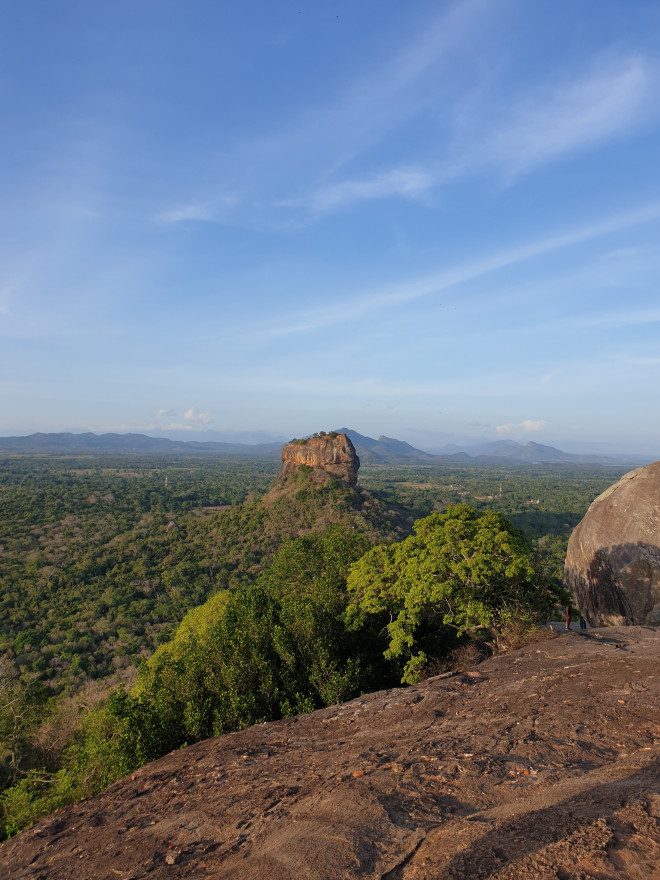The original interview with Dr Shenali Amaratunga, PhD, looked at her studies and career path from the perspective of an international student. But there were lots of interesting details that didn't fit into the published text. So we've decided to put together a Czech-Sri Lankan special about growing up in Sri Lanka, a typical Czech and Sri Lankans who can't swim.
For how long have you been living here?
In October it will be twelve years. I can’t believe how long it has been.
Do you think that your identity has changed thanks to this experience?
Definitely. When I moved here, I was barely 19. I had never been to Europe, and I came here by myself without my parents. I didn't know anyone and didn't speak the language. I would say that I became an adult here, the formative years were here. So, it's interesting to realise that I might know more things about Czech culture, and the Czech political situation than I know about my own country.
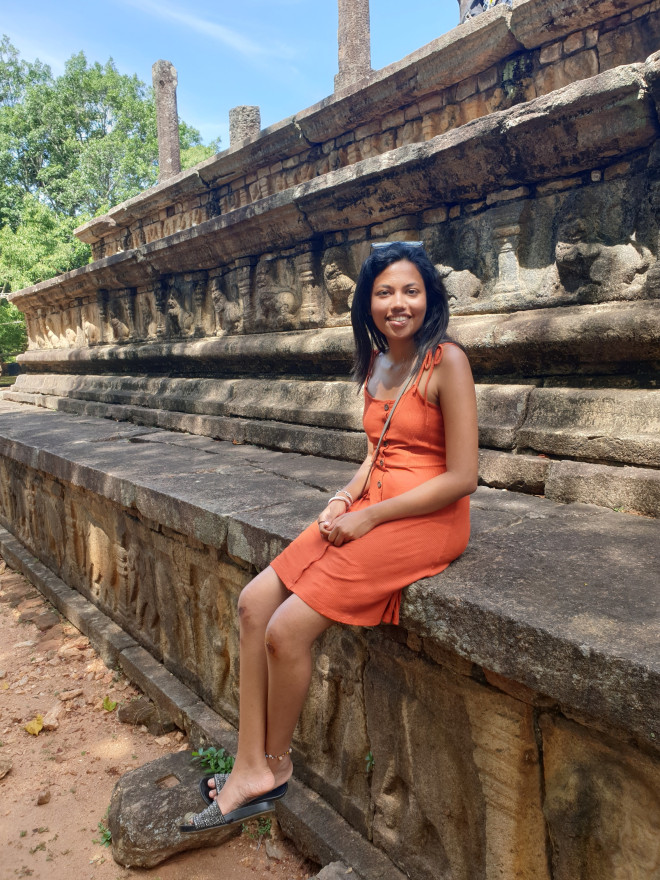
When I moved here, I was barely 19. I had never been to Europe, and I came here by myself without my parents. I didn't know anyone and didn't speak the language.
So what do you consider to be your home?
That's a very good question. It's difficult. I would say I have two homes. Prague has already become home, but Sri Lanka will never stop being home.
And how often do you go there? Does your family visit you here?
I try to go at least once per year and during med school I went once per year as well, but for longer thanks to the summer break. I often fly to Sri Lanka in the winter and my parents visit Prague in the summer. They wouldn’t be able to handle the winter.
Is it common for someone from Sri Lanka to have such good English?
I’d say yes for someone from the capital city. Sri Lanka was colonised by the Portuguese, then the Dutch and finally the British. Due to the British, English was introduced as a national language so in many schools, you can choose which language you study in from a very young age. My whole education was in English from the age of five. And among friends and family, we often speak in English as well.
Apart from Czech and English, what other languages do you speak?
We have two languages in Sri Lanka based on two ethnic groups. I am Sinhalese, therefore I speak the Sinhala language. It is completely different, even by alphabet, to the second language, which is Tamil. I learnt Tamil in school as well but unfortunately, I am not fluent.
What do you like about living in the Czech Republic?
I definitely like living here. If I didn't, I wouldn't still be here twelve years later. I really love the city of Prague. I was mesmerised when I first moved here by its beauty, especially at night. I love view of Prague Castle from the Old Town riverside, especially Charles Bridge and Prague Castle at night. And even now, twelve years later, it still takes my breath away. I like the nature in and around the Czech Republic. I really like to travel, so I like the location of Prague, which is extremely central and you can travel to many countries and cities from here.
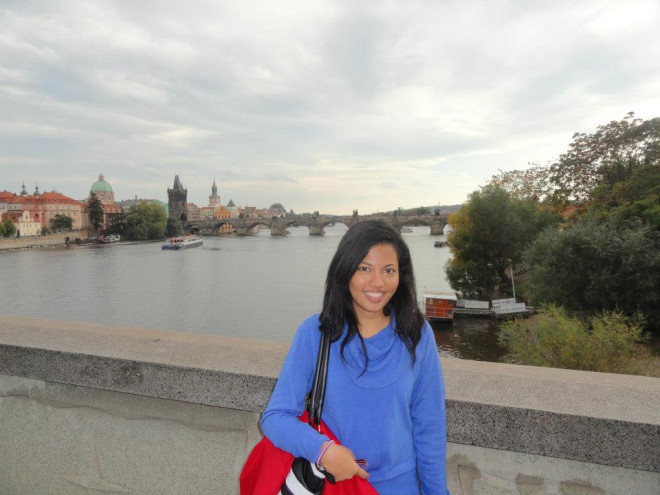
I really love the city of Prague. I was mesmerised when I first moved here by its beauty, especially at night. I love view of Prague Castle from the Old Town riverside, especially Charles Bridge and Prague Castle at night.
What was the biggest culture shock when you came here? An Italian friend of mine once told me his biggest culture shock was that when he got on the tram and as soon as the door closed, everybody stopped talking. That really shocked him.
Yes, it is true. It's interesting that when I first arrived here, I didn't realise how quiet it was, I only realised when I went back to Sri Lanka for my first summer holidays that it was different there, louder.
And, for example, in Sri Lanka, we have people in the bus and train coming to check tickets. So the grace system that is in Europe where you can get checked but not always, that was quite surprising: that it's a place where people are trusted to do the right thing.
There are passengers travelling without tickets here too…
Definitely. But I think in Asia, people are just more distrustful in these kinds of things. I don’t believe the government thinks it's possible to only have these random checks of tickets.
Because then no one would buy the tickets?
I actually think nothing would change. I think it would be, like here, that most would buy and only some wouldn't. But it's just the mindset that everything has to be checked and checked strictly.
Did the fact that most people are atheist here struck you?
That surprised me, actually, a lot, because Sri Lanka is a very religious country. Ninety-nine percent of people believe in something, so there's 70% Buddhism, around 10% Catholicism, and then some other minorities. When I arrived in Prague, I saw many signs of Christianity, beautiful churches everywhere. And then when I was asking around, many people said they were atheists. This was in contrast to Slovakia, where I think more people are religious which also surprised me since you used to be one country.
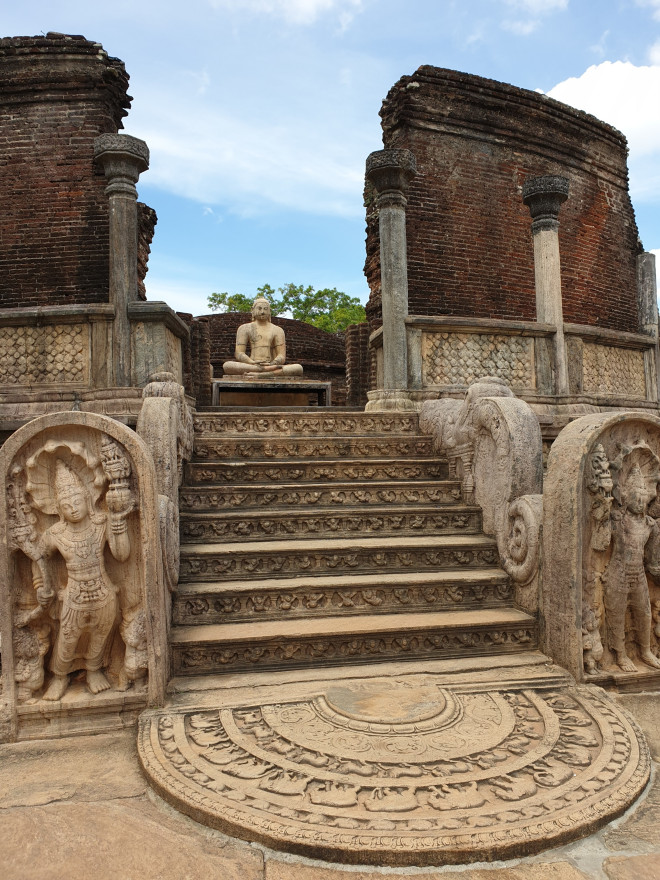
How would a typical Czech look and be like in your eyes?
I am biased due to my friends and colleagues. But I’d say it’s someone who's sporty, who goes hiking in the mountains or cycling on the weekends and likes beer. Most Czechs I have met love to travel. As a nation, I think Czechs have a good sense of humour and they even try to make light of a bad situation. I would say at the beginning they are a bit guarded, and then when they get to know you and they know you're here to stay they open up and there are some of the nicest people I've met.
A typical Czech? I’d say it’s someone who's sporty, who goes hiking in the mountains or cycling on the weekends and likes beer. Most Czechs I have met love to travel.
How about a Sri Lankan character?
A Sri Lankan would be very open, very hospitable, welcoming. We are sometimes overly accommodating. We would invite someone into our home immediately, help anyone. Interestingly, the Sri Lankan would probably not know how to swim even though we are an island.
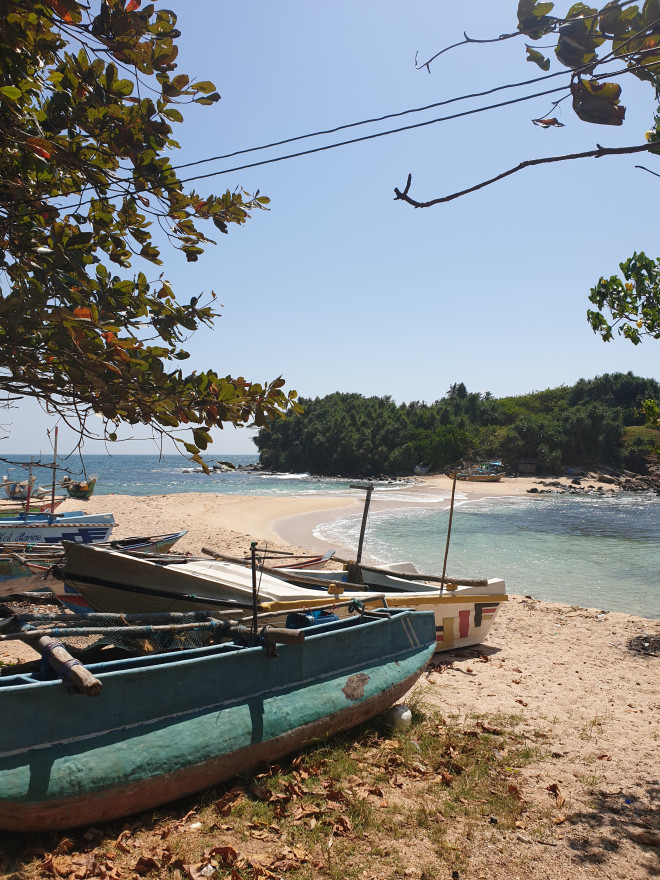
Can you swim?
Well, now, yes (laughter). But when I moved here, everyone was very shocked that the girl from Sri Lanka could not swim. It's not a thing that you were taught in school or it wasn't when I was a child.
So, the Sri Lankans would definitely not be as sporty and well travelled as Czechs. They would love to cook, they would love to spend time with family and friends. They honour cultural values and norms, such as celebrations.
How was growing up in Sri Lanka? I guess you witnessed the end of the civil war in 2009, right?
When I was growing up, the war was happening in the background and it was concentrated to the north part of the country and Colombo, the capital, is in the southwest. When I was going to school, there were talks about the terrorist coalition called LTTE (Liberation Tigers of Tamil Eelam, ed. note). They were saying that they're the only minority group that doesn't have their own country and they wanted half of the country for themselves, the north half. I remember as a child hearing on the news that they're trying to reach a treaty, some agreement. There was no outright war in the beginning, rather a cold war. But here and there, there were some issues. I remember, distinctly, one day. I was walking to the school bus after school one day and there was this loud bang from the other side of the school complex. And I remember walking with a friend and she was like, what was that? And I said maybe something fell from the construction site. Later, we found out that there was a suicide bomber who blew himself up next to a father picking up his daughter from our school.
And then the last two years from around 2007, there was outright fighting and war. In 2009, the rebel leader was killed and then the war ended. It was an interesting paradox for me the whole time, because in school in Colombo and around me, I had many Tamil friends. I didn't understand why there was such a big rift.
Otherwise, growing up in Sri Lanka was great. I think I had a very similar childhood to 90s kids in Prague in many aspects, and in addition, I got to grow up in plantations seeing tea manufacturing, rubber manufacturing and often seeing elephants, monkeys and other animals.
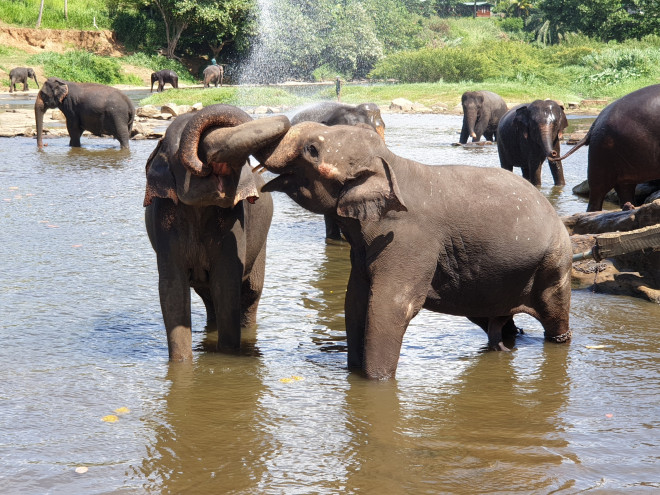
I had a very similar childhood to 90s kids in Prague in many aspects, and in addition, I got to grow up in plantations seeing tea manufacturing, rubber manufacturing and often seeing elephants, monkeys and other animals.
How old were you when the 2004 Asian tsunami hit the island? What were you doing?
I was eleven and I remember it very well. We had gone with my parents to visit a friend of my dad and he actually was living near the ocean in the south of Colombo. And I remember us having lunch and the TV was being on in the background. It wasn't even a Sri Lankan channel, it was BBC or CNN. They started showing videos of the tsunami and we had no idea what was going on. And then my uncle got a phone call from an orphanage, which was on his street saying that they were evacuating. I remember we also took some children from that orphanage and just drove inland as fast as we could. In the end, the big waves didn't hit close to Colombo, rather further south. But it was a horrible day that will always stay with me.
And during the Easter bombing, you were already here...
I was here. Yes, we've had a tough time the last few years in Sri Lanka. Tourism took a big blow during Covid. And as soon as the impacts of the pandemic got better then the Easter bombing happened. Itwas one of the worst moments of my life. One of the churches that was bombed in Colombo is where I used to go with my family on special occasions. And the day before, my parents had gone there for mass. When it happened, I got the news almost immediately. I tried to call my mum and she didn’t pick up, I called my dad, he also didn’t. And I just thought they were dead, but then in five minutes they called me. They didn't even know what was going on because thanks to social media, I got the news earlier than they did. They were at home. My heart breaks for the people whose outcome was different.
We've had a tough time the last few years in Sri Lanka. Tourism took a big blow during Covid. And as soon as the impacts of the pandemic got better then the Easter bombing happened. It was one of the worst moments of my life.
I read an article in Al Jazeera about the economic crisis, that about 10% of the doctors left the country because of the conditions.
Yes, this is very worrying. A lot of the specialists, people with atestace, have left the country, and now there are mostly young doctors, especially in smaller hospitals, who work without supervision, which is not good. So there has definitely been a big “brain drain” in the health sector and in the country as a whole. The last hit was now during the economic crisis. I used to have quite a few friends from high school living in Sri Lanka, and now I would say that I have only 20% of them left in Sri Lanka, most of them are all over the world now.
What are the main differences between the healthcare system here and Sri Lanka?
Public healthcare is free in Sri Lanka, not by insurance like in the Czech Republic, but it’s free state healthcare, from taxes. But we also have a much bigger private system than the Czech Republic as well. I would say that the private versus public is fifty fifty. And people who can afford it, prefer to pay and go to private hospitals because there are shorter waiting times and sometimes, better conditions.
Public healthcare is free in Sri Lanka, not by insurance like in the Czech Republic, but it’s free state healthcare, from taxes. But we also have a much bigger private system than the Czech Republic as well. I would say that the private versus public is fifty fifty.
In the Czech Republic, preventive health care works well, especially for children. They have a GP, have to have compulsory check-ups. This is not so well thought out in Sri Lanka. Here, I would estimate that private is 15–20% and the rest is public. That's one of the main differences, that in Sri Lanka the private is as popular as the public, but the public still has good standards. During the economic crisis now, there was a shortage of strong antibiotics. With the brain drain, all the good doctors are not there, so those kinds of things. But overall, as an Asian, South Asian country, I'm proud of Sri Lanka has very for having good healthcare with large hospitals in Colombo having comparable standards to Europe, for having a high literacy rate.
If you were to introduce Sri Lanka to someone who has never heard of it, how would you describe it in a nutshell?
I would say that it's an island nation close to India, in the middle of the Indian Ocean. It's shaped like a teardrop and is very diverse in places, food and people. If you were to travel to Sri Lanka, you would see everything from nice beaches, coral reefs, whales, dolphins, Sri Lankan leopards, elephants, monkeys, deer and you can go on safari, see high mountains, tea plantations and waterfalls, and then see our ruins from old kingdoms. It’s similar in size to Czech Republic so its not so hard to travel around and see many things.
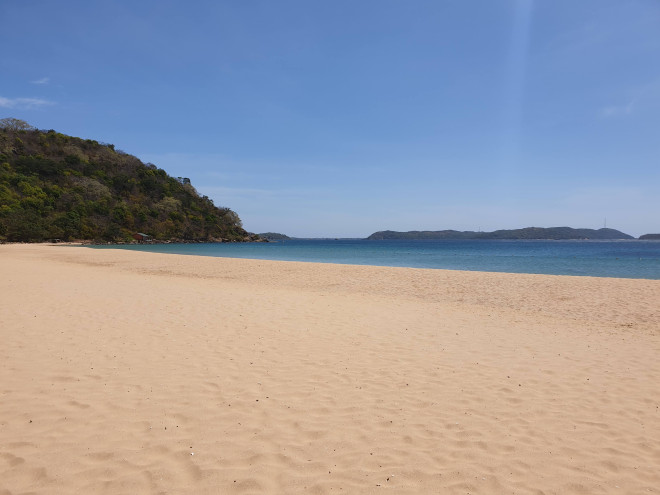
If you were to travel to Sri Lanka, you would see everything from nice beaches, coral reefs, whales, dolphins, Sri Lankan leopards, elephants, monkeys, deer and you can go on safari, see high mountains, tea plantations and waterfalls, and then see our ruins from old kingdoms.
Thank you for the interview.

